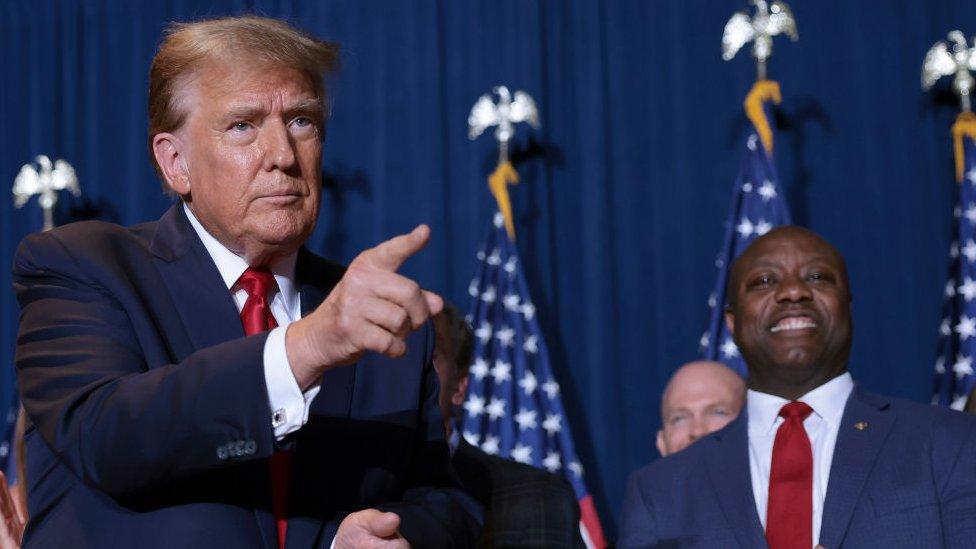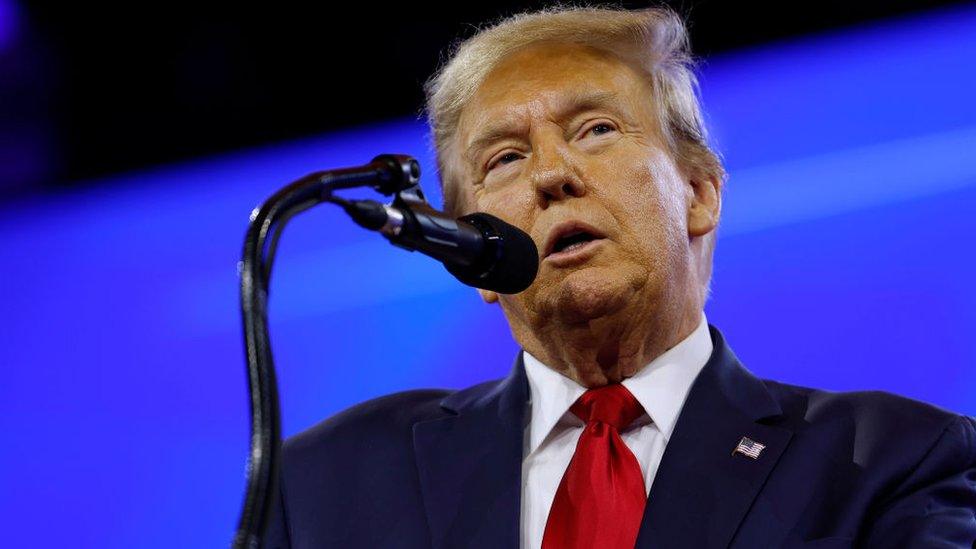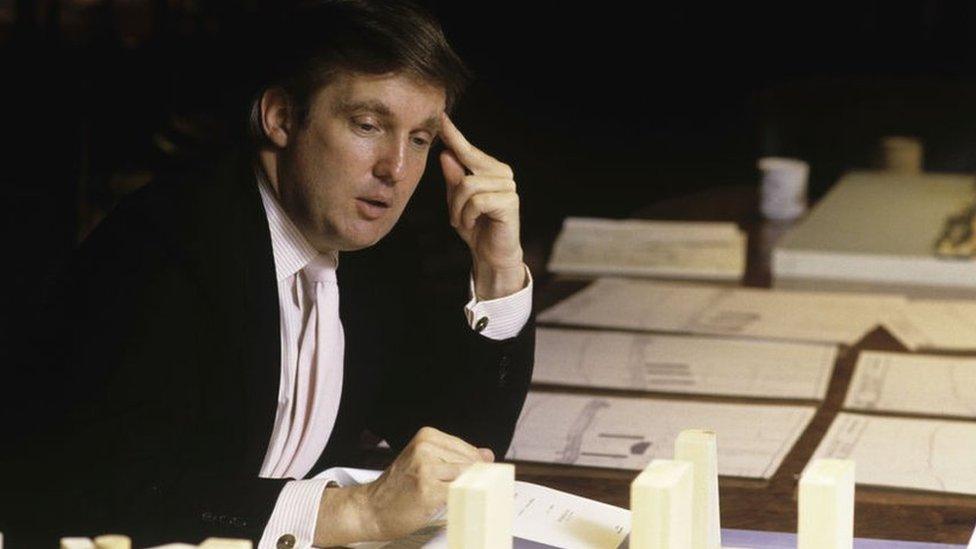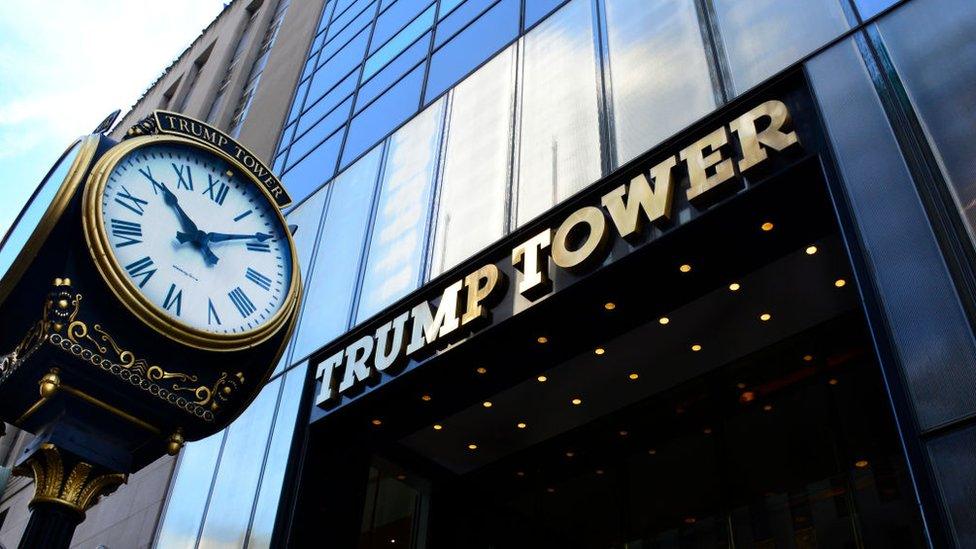Court denies Donald Trump's bid to pause $454m penalty in civil fraud case
- Published

Donald Trump must post a bond to cover the full $454m penalty while he appeals against the judgment in his New York civil fraud trial, a court has ruled.
Mr Trump's lawyers had argued he would "suffer irreparable harm" if forced to pay the entire sum and that he was prepared to post a $100m (£79m) bond.
The judge did pause a three-year ban on him seeking loans from New York banks - which could help him secure the bond.
New York's attorney general has vowed to seize his assets if he doesn't pay.
Mr Trump's lawyers have not immediately responded to the appeals court's ruling.
The order issued on Wednesday requires Mr Trump to pay the full amount, which stems from his misrepresenting of his property values, in the coming weeks.
In a filing on Wednesday, Mr Trump's lawyers said the "exorbitant and punitive amount of the judgment coupled with an unlawful and unconstitutional blanket prohibition on lending transactions would make it impossible to secure and post a complete bond".
They also said a $100m bond coupled with Trump's "vast" real estate properties and oversight by a court-designated monitor for the Trump Organization, should be sufficient to secure the full sum.
But their motion, which was opposed by Attorney General Letitia James, failed to convince appeals court Associate Justice Anil Singh.
But Judge Singh did agree to pause part of the judgement that prohibits Mr Trump and his sons from conducting business in the state, effectively leaving them at the head of the Trump Organization.
The penalty will keep accruing interest by at least $112,000 per day if he refuses to pay.
Ms James had asked the appeals court to deny Mr Trump's request.
"There is no merit to defendants' contention that a full bond or deposit is unnecessary because they are willing to post a partial undertaking of less than a quarter of the judgment amount," the attorney general's office said in a filing.
"Defendants all but concede that Mr Trump has insufficient liquid assets to satisfy the judgment: defendants would need 'to raise capital' to do so. These are precisely the circumstances for which a full bond or deposit is necessary."
Last week, Ms James told ABC News: "If he does not have funds to pay off the judgment, then we will seek judgment enforcement mechanisms in court, and we will ask the judge to seize his assets."
According to a Forbes estimate, Mr Trump is worth about $2.6bn. Though it is unclear how much cash he has on hand, he testified last year he has $400m in liquid assets.
In addition to paying penalties for business fraud, the ex-president was also ordered to pay $83m last month after losing a defamation case to E Jean Carroll, a woman he was found to have sexually abused.
Meanwhile, Judge Arthur Engoron, who issued the judgement that Mr Trump is seeking to overturn, was involved in a hazardous substances scare on Wednesday. Court staff opened an envelope containing a powdery substance addressed to him, officials say.
Preliminary testing "showed it was negative for hazardous substances", Al Baker, a court spokesperson told the BBC. Judge Engoron did not have any exposure to the letter.
With additional reporting by Kayla Epstein
Related topics
- Published27 February 2024

- Published17 February 2024

- Published16 February 2024
